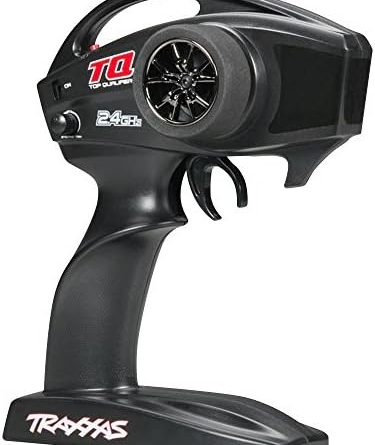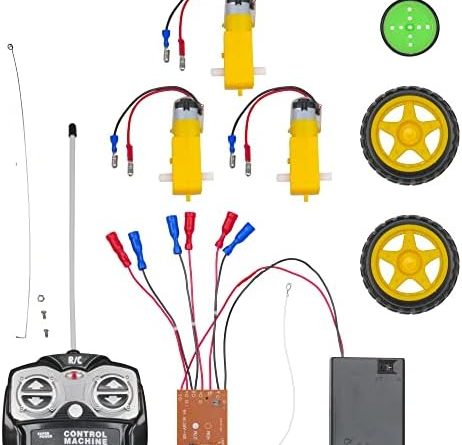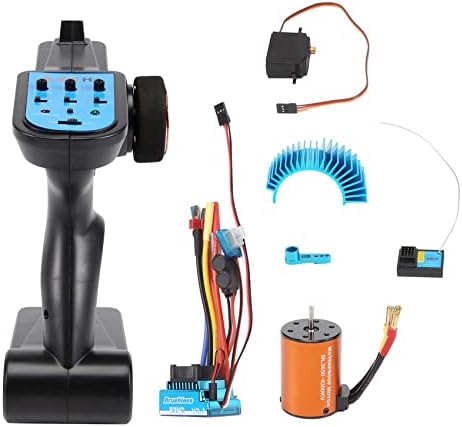








RC Car Gas Powered: A Comprehensive Guide to Choosing and Maintaining Your Gas-Powered RC Car
Gas-powered RC cars offer a thrilling and exciting driving experience that electric cars can’t duplicate. From their roar of the engine to their top speeds, gas-powered RC cars are loved by hobbyists and professionals alike. However, choosing and maintaining a gas-powered RC car can be quite challenging. In this guide, we will explore different factors that you should consider when purchasing and maintaining a gas-powered RC car.
Section 1: Types of Gas-Powered RC Cars
When it comes to gas-powered RC cars, there are two types – on-road and off-road. On-road cars are designed to run fast on smooth surfaces, such as race tracks or parking lots. Off-road cars, on the other hand, are built for rocky and unpredictable terrains, like dirt tracks or bumpy hills. Depending on your preferences, you should choose a car that is suitable for the kind of driving experience you want.
Section 2: Gas-Powered RC Car Engines
Gas-powered RC cars are powered by gasoline engines that use two-stroke mixes of oil and gas. When choosing a gas-powered RC car, you should consider the type of engine it has. Some engines are better suited for on-road racing, while others are more suitable for off-road conditions. Furthermore, engines can have different sizes and power outputs, which can affect the car’s acceleration and top speed.
Section 3: Gas-Powered RC Car Maintenance
Gas-powered RC cars require frequent maintenance to run optimally. Some maintenance tips include:
– Change the engine oil frequently. You should use a high-quality oil to ensure the engine’s longevity and performance.
– Clean the air filter regularly. A dirty air filter can reduce the engine’s power and increase the fuel consumption.
– Lubricate the moving parts to prevent friction and wear.
– Check and replace the spark plug every few months to ensure that the engine is running efficiently.
Section 4: Common Problems with Gas-Powered RC Cars
Like any machine, gas-powered RC cars can have problems that need to be addressed. Some common problems include:
– Engine not starting. This can be caused by a variety of issues, including a dead battery, a clogged fuel filter, or a faulty spark plug.
– Overheating. Gas-powered RC cars can overheat if the engine is run for extended periods. To prevent this, you should let the engine cool down between runs and use a high-quality cooling system.
– Gear stripping. This can occur when the gears are not lubricated correctly, or the engine’s power is too high for the car’s gear ratio.
FAQs
1. Are gas-powered RC cars more expensive than electric ones?
Yes, gas-powered RC cars tend to be more expensive than electric ones due to the cost of the engine and fuel.
2. How long can a gas-powered RC car run on a single tank of fuel?
The duration depends on the car’s engine size and fuel tank size. Generally, gas-powered RC cars can run for 10-20 minutes on a single tank of fuel.
3. Is it safe to use gasoline in a gas-powered RC car?
Yes, it is safe to use gasoline in a gas-powered RC car as long as it’s mixed with the right amount of oil.
4. Can I use regular motor oil in my RC car?
No, you should use a high-quality oil designed specifically for gas-powered RC cars.
5. What is the top speed of a gas-powered RC car?
The top speed of a gas-powered RC car depends on the car’s engine size and power output. Some gas-powered RC cars can reach speeds of up to 70mph.
Conclusion
Gas-powered RC cars are an exhilarating way to experience the thrill of racing. When choosing a gas-powered RC car, you should consider factors such as the type of car, engine size, and maintenance requirements. Additionally, you should regularly maintain your RC car to ensure that it runs optimally and has a long lifespan. With these tips, you can have many enjoyable hours of racing with your gas-powered RC car.
Price: $49.99 - $39.99
(as of Mar 08, 2023 12:09:10 UTC – Details)







